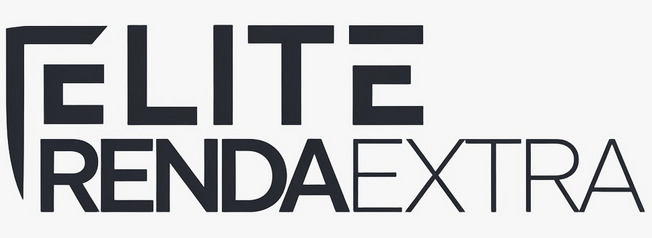Getting financing with a low credit score in the USA can be tough. There’s much to learn about bad credit financing, loans for low credit, and financing with less than perfect credit. Seeking personal loans or credit cards? They help buy things even when your credit isn’t great. Banks, credit unions, and online lenders offer help to those with low scores, usually without needing collateral. But, with little credit history, getting these loans might be hard. Secured credit cards and credit-builder loans can help you improve your score. But watch out for risky options like title or payday loans that can have high costs.
Low credit scores, between 300-600 for VantageScores® and 200-579 for FICO®, mark a tough credit landscape. Yet, there are ways like home equity loans, which the Federal Trade Commission says could lend you up to 80% of your home’s worth. Beware of loans with high interest, sometimes over 28%. Your score improves with on-time payments, making up to 35% of some scores. Using secured or joint loans can boost your chances of approval. Credit unions might help those without much credit history. And putting more money down on a car loan can help too.
Understanding Your Credit Score and Financing Options
Your financial applications’ outcomes often depend on your credit score. This score plays a big part in how lenders see your ability to pay back money. Knowing about your credit score, how it’s figured out, and how it affects your chances for loans with not-so-great credit is key to making your financial situation better.
What is a Credit Score?
A credit score shows your reliability in paying back money, based on your credit activities. It’s figured from your credit reports from credit bureaus and goes from 300 to 850. A higher score means you’re more likely to pay back what you owe. Banks and credit companies use this score to figure out if lending money to you is risky.
How Your Credit Score Affects Financing
Your credit score is really important when you’re looking to get a loan or finance anything with a low credit. A good score opens the door to better loan terms like lower interest rates and more credit. But a low score could mean paying more interest or needing extra collateral. For example, a lower score could increase your payments significantly on a mortgage, costing you tens of thousands more in interest over time.
Common Myths About Low Credit Scores
It helps to know the facts about credit scores to improve yours. Many believe no credit is as bad as poor credit, but having no credit history also makes it tough to get loans. It’s smart to start building credit in a way you can handle, like with a secured credit card. This type of card is made for building or fixing your credit by having a credit line backed by a cash deposit.
Understanding credit scores and how they affect loans can really change how you handle your finances. Keeping a good credit score, or working on a low one, can get you better loan terms. This saves you money over time and gives you more financial freedom.
Types of Financing Available for Low Credit Scores
It can be hard to get financing if your credit score isn’t high. But knowing the types of loans out there can help a lot. You can look into personal loans from lenders who don’t mind low credit scores. Or go for secured loans that require you to put up something valuable as backup.
Personal Loans
Personal loans are good for people with not-so-great credit. Lenders look at more than your credit score; they consider your income and job history too. This means you could still get a loan for urgent needs or to pay off other debts, even if banks have said no before.
Secured vs. Unsecured Loans
Secured loans ask for collateral, like a car or house, which gives lenders a safety net. This kind of loan can give you more money and possibly lower interest rates, even with a lower credit score. On the flip side, unsecured loans don’t need collateral, but they usually have higher interest rates and stricter credit needs, making them harder to get with a low credit score.
Credit Union Options
If banks aren’t helpful, think about credit unions. They care more about their members and might be more willing to help if your credit score isn’t the best. They often offer better deals, like lower interest rates and fees, compared to other lenders that accept low credit scores.
| Lender Type | Approval Rates | Typical Interest Rates | Common Loan Amounts |
|---|---|---|---|
| Banks | 28% | 11.54% – 20.97% | $1,000 – $50,000 |
| Credit Unions | 20% higher than unsecured | 17.85% – 20.97% | Up to $50,000 |
| Online Lenders | 52% | 14.36% – 20.97% | $1,000 – $50,000 |
Knowing your financing options with a low credit score is key. Checking out the different terms from lenders like banks, credit unions, and online platforms is smart. Remember, each lender has its own rules and rates. Picking the best one can really affect your future payments and financial health.
Steps to Improve Your Chances of Getting Approved
Entering the world of loans can seem scary, especially with bad credit. But, knowing a few key steps can really boost your chance of getting a loan and help you gain control over your finances.
Check Your Credit Report
Start by looking at your credit report. You can get it for free once a year from big credit bureaus. Surprisingly, 1 out of 5 Americans find mistakes on their reports that hurt their scores. Fixing these errors and knowing what affects your score can be a game changer. Remember, how you pay bills and use your credit matters a lot for your score.
Research Lenders and Their Requirements
Not all lenders are the same. Find ones that fit your financial situation. Look for bad credit loans or secured loans, which might be easier to get because you offer something valuable as a guarantee. Knowing what lenders want can help you pick the right one and increase your approval odds.
Create a Solid Application
When applying for a loan, showing you’re a safe bet is key. Show that you don’t owe too much compared to what you earn, ideally less than 36%, and that you always pay on time. If your credit history isn’t strong, highlight a steady job or income to prove you can pay back the loan.
By checking your credit, picking the right lenders, and making a good application, you’re not just improving your chances to get approved. You’re also on your way to getting a better deal on your loan. These steps lay down a solid financial groundwork, helping you manage and better your credit over time.
Tips for Financing with Little Credit History
Getting funding with a small credit history can seem tough. Learning more strategies can make it easier and less scary. We will look at ways to get a loan, even if you don’t have much credit history.
Consider a Co-Signer
Having a co-signer means someone has got your back financially. This person, often a close friend or family member with better credit, promises to help pay your loan. Their good credit makes up for your lack of history, making it easier to get approved. But, remember, if you miss payments, their credit score could suffer too.
Explore Alternative Lenders
Looking beyond traditional banks can help you find financing. Alternative lenders like Avant and Upstart accept people with lower credit scores. They look at other things like your job and income to decide if you can repay a loan.
Use Online Loan Platforms
Online lenders are a handy choice for those with low credit scores. They offer different loans and usually work faster than banks. Upstart says that they send out loan money by the next day after everything is checked and approved.
Finding the right financial tools and info can improve your chances of getting a loan, even with little or no credit history. Look into these options to see what works best for your situation.
Navigating Interest Rates and Loan Terms
When you need to get a loan, knowing about interest rates and loan terms is key. This is very important if your credit score isn’t great. Knowing this can help you grasp why bad credit loans have high-interest rates. It also gives you power to negotiate better loan terms.
Understanding APR and Loan Fees
The Annual Percentage Rate (APR) includes the interest and extra fees. It’s a crucial number for comparing loans. If your credit score is low, expect higher APRs. This shows the lender’s view of you as a higher risk. It’s vital to know this to understand the real cost of your loan.
How to Negotiate Better Terms
Negotiating can seem hard, but you can get better terms by looking at different offers. Show lenders your financial stability and how you might improve. This will push them to give you better rates and terms. Knowing the market rates and your own eligibility is important for this.
The Importance of Repayment Plans
A good repayment plan helps you manage your budget and affects your costs and credit. Pick a plan that fits your monthly budget but tries to minimize interest costs. Being honest about your financial state will help avoid defaults and harm to your credit.
| Credit Score Range | APR | Monthly Payment | Total Paid Over Loan Life |
|---|---|---|---|
| 760-850 | 6.458% | $1,888 | $379,653 |
| 620-639 | 8.047% | $2,211 | $496,007 |
| Comparison | Savings of $116,354 in interest with a higher credit score | ||
By understanding APRs, skillfully negotiating, and picking the right repayment plan, you can handle loans well, even with a low credit score. These steps lower the stress of high-interest rates. They also lead to better financial health and a higher credit score.
Conclusion: Taking the Next Step Toward Financing
Getting financing with a low credit score can seem hard, but many have done it successfully. Your credit score shows how you’ve handled money in the past. It’s key to getting loans and other financial help. In this article, we looked at credit scores, financing options, and how to boost your approval odds. Even if your FICO score is below 670, there are still ways to get funding.
Recommended Institution for Your Loan
When you’re ready to apply for loans with a low credit score, pick a trusted lender who understands your situation. Capital One is a great choice. They offer products designed to help people build or fix their credit. They help customers grasp their finances and provide tools for loan success and better credit. Regularly checking your credit report can also spot errors and track your progress.
Use what you’ve learned to make a smart financing plan. Know how credit scores affect loan terms, the importance of payment history, and other factors. Consider FHA, VA, and USDA loans if you’re buying a home with a low score. Secured credit cards and credit-builder loans can also help. Making smart choices now can lead to better financial stability.
For those interested in a deeper look, this article is a must-read
FAQ
What financing options are available for those with low credit scores in the USA?
People with low credit scores have various financing options. They might look at secured and unsecured personal loans, credit cards requiring security, and credit-builder loans. Credit unions and certain online lenders or platforms also offer loans to those with bad credit.
How does my credit score affect my financing opportunities?
Your credit score is crucial for lenders when they review your loan request. It influences loan eligibility, interest rates, and loan terms. Essentially, a high credit score often gets you better loan conditions. A lower score can result in higher interest rates and less choice.
What are some common myths about low credit scores?
One myth is equating no credit with bad credit. However, having no credit means there’s no credit history to evaluate. In contrast, a low credit score indicates a history of poor credit management. Another myth is that lenders only look at your credit score, but they also consider your income among other factors.
What’s the difference between secured and unsecured loans?
Secured loans need some form of collateral like a deposit or property. If you can’t pay the loan back, the lender can take this collateral. On the other hand, unsecured loans don’t require collateral but are given based on your credit rating. Unsecured loans usually have higher interest rates for those with bad credit.
Why might a credit union be a good option for someone with a low credit score?
Credit unions often have lower rates and fees for loans. They provide personalized service and may have more flexible lending criteria than banks. They are a good choice for people with not-so-great credit.
How can I improve my chances of getting a loan with a low credit score?
Improving your chances starts with knowing your credit report well. Look for lenders that suit your abilities, and present a strong application that shows your financial situation clearly. Tools that show how a loan might affect your credit score are helpful too.
What are the benefits of having a co-signer when applying for a loan?
Having a co-signer with good credit can really boost your loan application. They reassure the lender that the loan will be paid back. This could get you better loan terms than if you applied alone.
Are online loan platforms a viable option for those with low credit scores?
Yes, online loan platforms are worth looking into for those with low credit scores. They offer quick application processes and competitive rates. Their approval criteria may be more lenient. Always research and understand their terms fully before agreeing to anything.
What is APR, and why is it important for loans?
APR stands for Annual Percentage Rate. It shows the yearly cost of a loan, including interest and fees. It’s important because it shows the total borrowing cost and affects your monthly payments. A lower APR means lower costs.
How can I negotiate better terms on a loan with a low credit score?
To negotiate better terms, first, gather offers from various lenders. Show evidence that you’re a reliable borrower. This could include showing steady income or how you’ve bettered your finances. Sometimes, having pre-approvals from other lenders can also help in negotiations.
Why is a well-structured repayment plan important?
A good repayment plan helps you make payments on time. This saves you from late fees and extra interest. Plus, paying on time boosts your credit score and your borrowing credibility down the line.
Which institution could I consider for a loan if I have a low credit score?
You might look into Capital One for a loan. They offer options for people with fair or rebuilding credit. Their pre-approval process can indicate your chances without affecting your credit score.



